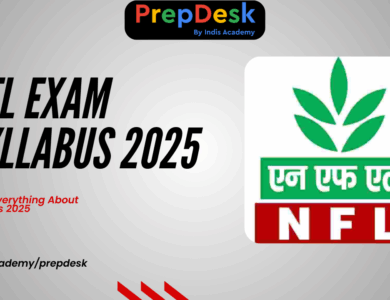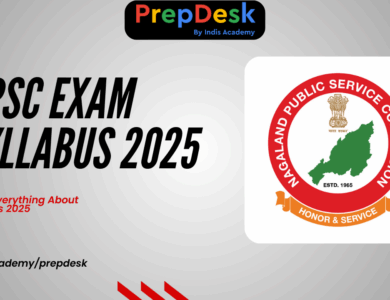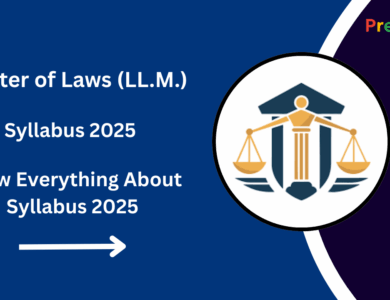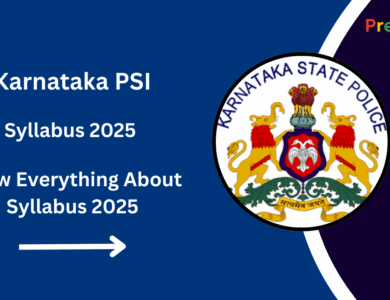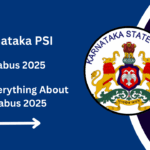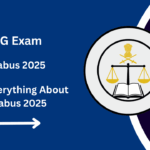MBBS Syllabus 2025 – Subjects, Phases & Duration Explained
Explore the comprehensive MBBS syllabus for India in 2025. Includes semester-wise breakdown of Pre‑Clinical (Anatomy, Physiology, Biochemistry), Para‑Clinical (Pathology, Microbiology, Pharmacology, Forensic Medicine) and Clinical phases, plus the 12‑month internship. Ideal for aspirants planning NEET‑UG and medical education.
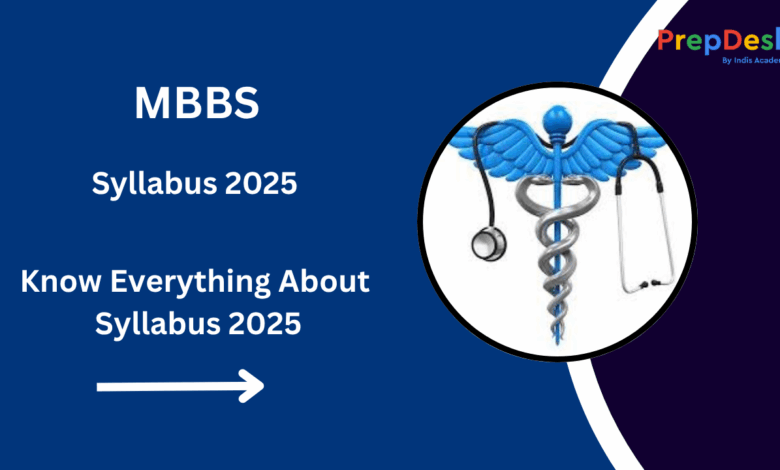
MBBS (Bachelor of Medicine, Bachelor of Surgery) is a comprehensive 5.5-year undergraduate program in India, designed to train students to become competent medical professionals. It comprises 4.5 years of academic education followed by a 1-year compulsory rotating internship. The syllabus is structured as per the National Medical Commission (NMC) guidelines under the Competency-Based Medical Education (CBME) curriculum.
Course Structure & Assessment Overview
| Phase | Duration | Semesters | Key Focus & Assessments |
|---|---|---|---|
| Phase I – Pre‑Clinical | 1 year | 1–2 | Anatomy, Physiology, Biochemistry; OSPEs, viva, 75% attendance |
| Phase II – Para‑Clinical | 1 year | 3–5 | Pathology, Pharmacology, Microbiology, Forensic Medicine, Community Medicine |
| Phase III – Clinical | 2.5 years | 6–9 | Clinical rotations, integrated assessments, AETCOM module |
| Rotating Internship | 1 year | – | Mandatory clinical clerkships in core specialties |
| National Exit Test (NExT) | Final year | – | Licensing and PG entrance exam |
MBBS Semester-wise Syllabus
The MBBS program in India is a structured five-and-a-half-year course regulated by the National Medical Commission (NMC). It is divided into nine semesters followed by a one-year compulsory internship. Below is a semester-wise detailed syllabus breakdown with subjects, topics, descriptions, and assessments for each semester.
Semester 1 Syllabus
| Subject | Topics | Topic Description | Assessment |
|---|---|---|---|
| Anatomy | Gross Anatomy, Embryology, Histology, Neuroanatomy, Surface Anatomy | Study of human body structures, their development, microscopic anatomy, nervous system structure, and surface landmarks. | Theory + Practical exams, OSPEs, Viva, 75% attendance mandatory |
| Physiology | Cardiovascular, Respiratory, Gastrointestinal, Renal, Neurophysiology, Endocrine | Understanding functions of body systems, their interactions, and hormonal regulation mechanisms. | |
| Biochemistry | Biomolecules, Enzymes, Metabolism, Vitamins | Molecular composition of life, enzymology, energy production, and nutritional biochemistry. |
Semester 2 Syllabus
| Subject | Topics | Topic Description | Assessment |
|---|---|---|---|
| Anatomy | Thorax, Abdomen, Pelvis, Embryology Continuation | Focuses on internal organ structure and embryonic development of the urogenital and digestive systems. | University exams + Internal assessments |
| Physiology | Nervous System, Special Senses | Detailed structure and function of the brain, spinal cord, eye, and ear physiology. | |
| Biochemistry | Molecular Biology, Diagnostic Biochemistry | Gene expression, protein synthesis, diagnostic techniques such as ELISA, RFT, LFT. |
Semester 3 Syllabus
| Subject | Topics | Topic Description | Assessment |
|---|---|---|---|
| Pathology | General Pathology, Systemic Pathology | Study of disease mechanisms, inflammation, neoplasia, and organ-specific diseases. | Theory + Practical exams, Viva, Clinical correlation assignments |
| Microbiology | Bacteriology, Virology, Parasitology, Immunology | Structure, classification, and pathogenesis of microbes and host defense mechanisms. | |
| Pharmacology | Pharmacokinetics, Drug Mechanisms, Drug Classes | Absorption, distribution, metabolism, excretion, and clinical pharmacology principles. | |
| Forensic Medicine | Toxicology, Legal Procedures, Postmortem | Medical jurisprudence, handling poisoning cases, documentation of injuries and deaths. | |
| Community Medicine | Epidemiology, National Health Programs | Health indicators, disease control programs, immunization schedules, and public health policies. |
Semester 4 Syllabus
| Component | Topics | Description | Assessment |
|---|---|---|---|
| Postings | Medicine, Surgery, OBG, Pediatrics, Psychiatry | Clinical ward exposure to patient management, diagnosis, and treatment basics. | Bedside viva, Internal logbook evaluation |
| Skills | Case taking, Clinical examination | History recording, systemic examination, and patient communication skills. |
Semester 5 Syllabus
| Component | Topics | Description | Assessment |
|---|---|---|---|
| Topics | Medicine, Community Health, Pediatric ICU | Continued clinical training with public health duties and ICU observation. | Case logs, Observation notes, Internal marks |
| Skills | ICU, Obstetric procedures, Lab training | Assisting deliveries, emergency handling, blood grouping, specimen collection. |
Semesters 6–7 Syllabus
| Component | Topics | Description | Assessment |
|---|---|---|---|
| Specialties | ENT, Ophthalmology, Dermatology, Psychiatry | Focused training on ENT pathologies, eye disorders, dermatologic procedures, and mental health diagnosis. | Mini-CEX, OSCE, Logbook entries |
| Skills | Otoscopy, Slit-lamp exam, CPR, Skin biopsy | Procedural training in minor surgeries and life-saving techniques. |
Semesters 8–9 Syllabus
| Component | Topics | Description | Assessment |
|---|---|---|---|
| Core Postings | General Medicine, Surgery, Pediatrics, OBG, ICU | Long-term clinical postings with emphasis on critical care, patient handling, and emergency protocols. | Final exams (NExT), Long case/short case, Integrated OSCE, Logbook & Internship Assessment |
| Assessment | Case presentations, Viva, Clinical rounds | Detailed analysis and diagnosis of patient cases during rounds and discussions. | |
| Exit Exam | NExT (National Exit Test) | Mandatory MBBS exit and PG entrance exam, includes both theoretical and practical assessments. |
Core and Elective Subjects in MBBS
In the MBBS curriculum, subjects are classified into core (compulsory) and elective (optional) categories as per NMC guidelines. Here’s a structured breakdown:
| Type | Subjects | Description |
|---|---|---|
| Core Subjects | Anatomy, Physiology, Biochemistry, Pathology, Microbiology, Pharmacology, Forensic Medicine, Community Medicine, ENT, Ophthalmology, General Medicine, Surgery, Pediatrics, Obstetrics & Gynaecology, Psychiatry, Dermatology | These are mandatory subjects taught throughout the semesters. They form the foundation of clinical knowledge and medical practice. |
| Elective Subjects | Medical Humanities, Infectious Diseases, Radiology, Palliative Care, Research Methodology, Bioethics, Geriatric Medicine, Emergency Medicine, Nutrition, Sports Medicine | These are selected by students during the clinical years (usually in 8th–9th semesters). Electives allow exposure to specialized areas of interest and research. |
Marks Distribution & Assessment Structure
| Component | Marks |
|---|---|
| Theory (per subject) | 2 papers x 100 = 200 |
| Practical/Clinical + Viva | 100 |
| Internal Assessment | 20–40% weightage |
| OSPE/OSCE (skills) | Included in practicals |
| Total (per subject) | 300 |
MBBS Syllabus PDF Download
Recommended Books for MBBS
| Subject | Recommended Books |
|---|---|
| Anatomy | Gray’s Anatomy, Snell’s Clinical Anatomy |
| Physiology | Guyton & Hall, Ganong |
| Biochemistry | Harper’s, Satyanarayana, Lehninger |
| Pathology | Robbins & Cotran, Harsh Mohan |
| Pharmacology | K.D. Tripathi, Rang & Dale |
| Microbiology | Ananthanarayan, Jawetz |
| Forensic Medicine | Reddy’s Essentials |
| Community Medicine | Park’s Textbook |
| Medicine | Harrison’s Principles, Kumar & Clark |
| Surgery | Bailey & Love, Sabiston |
| Pediatrics | Nelson’s Pediatrics |
| OBG | DC Dutta, Williams Obstetrics |
| ENT | Dhingra, Cummings |
| Ophthalmology | Kanski, Parsons |
| Psychiatry | Kaplan & Sadock |
MBBS Preparation Tips
- Create a subject-wise study plan aligned with semester objectives.
- Use diagrams, mnemonics, and clinical correlations for concept clarity.
- Revise frequently and solve previous year questions.
- Maintain a logbook for clinical and procedural skills.
- Participate in case presentations and seminars.
- Use mock tests to simulate exam pressure.
- Stay consistent with AETCOM skill documentation.
Post-MBBS Specializations
- NEET-PG: MD/MS in Medicine, Surgery, Radiology, Pediatrics, etc.
- Super-specialties: DM (Cardiology, Neurology), MCh (Neurosurgery, Urology)
- Other Fields: Hospital Management, Medical Research, Public Health, Medical Writing
Conclusion
The MBBS syllabus is structured to build a strong foundation in basic and clinical sciences, fostering the development of skilled, ethical, and compassionate medical professionals. With the introduction of NExT and CBME, the curriculum now emphasizes practical competence, critical thinking, communication, and a patient-first approach. To excel, students should focus on integrated learning, hands-on training, consistent practice, and mental resilience throughout the journey.
Frequently Asked Questions (FAQs) – MBBS Syllabus
1. How many years is the MBBS course in India?
The MBBS program in India spans 5.5 years, including 4.5 years of academic study divided into 9 semesters and 1 year of compulsory rotatory internship.
2. What are the major subjects in MBBS?
Major subjects include Anatomy, Physiology, Biochemistry, Pathology, Pharmacology, Microbiology, Medicine, Surgery, OBG, Pediatrics and more. These are part of the core curriculum.
3. Are electives compulsory in MBBS?
Yes, as per the revised NMC curriculum, every MBBS student must complete at least one elective posting during the clinical phase (8th or 9th semester). Electives help students explore specialized fields.
4. What is the NExT exam in MBBS?
NExT (National Exit Test) is a mandatory exit exam introduced by the NMC. It replaces the final university exams and also acts as a postgraduate entrance test.
5. What is the eligibility for MBBS in India?
Eligibility includes passing 10+2 with Physics, Chemistry, Biology and qualifying the NEET-UG examination.
6. Is internship part of the MBBS syllabus?
Yes, the 12-month rotatory internship is a mandatory component of the MBBS program. It includes postings in various departments to develop clinical skills.
7. How many clinical subjects are there in MBBS?
Major clinical subjects include Medicine, Surgery, Obstetrics & Gynaecology, Pediatrics, ENT, Ophthalmology, Psychiatry, and Dermatology.
8. How is the MBBS syllabus assessed?
Assessment includes theory exams, practicals, vivas, clinical skill tests (OSCE/OSPE), logbook maintenance, and final NExT exam.
9. Can I choose electives like Radiology or Sports Medicine?
Yes, during the final year, students may choose electives like Radiology, Sports Medicine, Emergency Medicine, or others depending on institutional offerings.
10. Is the MBBS syllabus available in PDF format?
Yes. You can Download the official MBBS syllabus PDF here for offline access.
